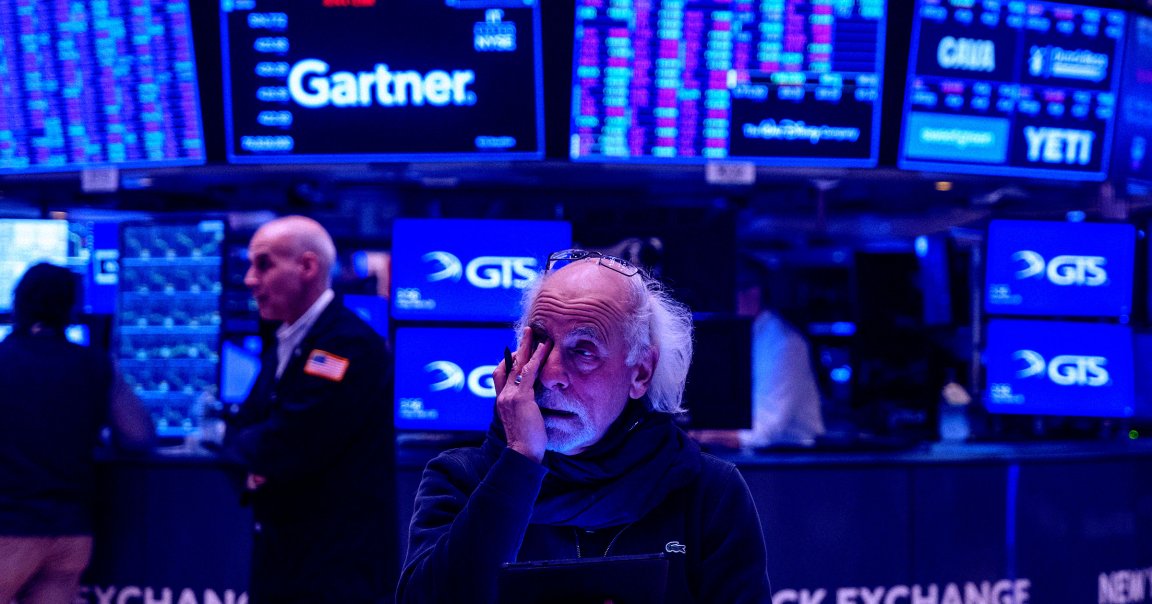
The Bank of England has sounded the alarm, warning of an intensifying risk of a “sudden correction” in global financial markets driven by the spending frenzy on artificial intelligence.
As Reuters points out, it’s the institution’s clearest warning yet that we could be on the precipice of an AI disaster.
“The risk of a sharp market correction has increased,” said the Bank of England’s financial policy committee during a Wednesday meeting, as quoted by Reuters, warning that “equity market valuations appear stretched, particularly for technology companies focused on artificial intelligence.”
“Should expectations around the impact of AI become less optimistic,” markets could be left “particularly exposed,” the bank cautioned.
Concerns over an AI bubble bursting have grown lately, with analysts recently finding that it’s 17 times the size of the dotcom-era bubble and four times bigger than the 2008 financial crisis.
Analysts — and even OpenAI CEO Sam Altman himself — have acknowledged that AI companies are struggling to make enough money to cover their exorbitant expenses, concerns that drove a major tech selloff earlier this year.
And whether they’ll ever be able to produce enough revenue is a looming question. A startling report by researchers at MIT spooked investors in August, finding that only a measly five percent of AI pilot programs help businesses succeed at “rapid revenue acceleration,” with the vast majority falling flat.
Yet according to recent estimates, generative AI now accounts for roughly 40 percent of the United States’ gross domestic product. In other words, if the AI spending boom falls apart, it could take down the entire economy with it.
Fund manager and former Morgan Stanley investor Ruchir Sharma warned in a recent piece for the Financial Times that the US economy has turned into “one big bet on AI.”
“AI companies have accounted for 80 per cent of the gains in US stocks so far in 2025,” he wrote. “That is helping to fund and drive US growth, as the AI-driven stock market draws in money from all over the world, and feeds a boom in consumer spending by the rich.”
Put simply, only the extremely wealthy appear to be benefiting from all of this.
“The top ten percent of earners account for half of consumer spending,” Sharma added, “the highest share on record since the data begins.”
“The AI trade is beginning to resemble one of the great speculative manias of market history,” Selwood Asset Management chief investment officer of equities Karim Moussalem wrote in a LinkedIn post last week. “For me, there is no denying that we are in the midst of a bubble, and a total retail-driven frenzy.”
Meanwhile, the White House has stoked ongoing fears of a major correction, with president Donald Trump repeatedly urging the US central bank to slash interest rates in an effort to make interest payments on US debt more affordable.
“A sudden or significant change in perceptions of Federal Reserve credibility could result in a sharp repricing of US dollar assets, including in US sovereign debt markets, with the potential for increased volatility, risk premia and global spillovers,” the Bank of England warned, as quoted by Reuters.
However, tech leaders are mostly soaring above the anxiety about an AI bubble, or even flipping those concerns around to frame the possibility as a positive: during an event last week, Amazon founder Jeff Bezos claimed that if such a bubble were to burst, “it can even be good, because when the dust settles and you see who are the winners, societies benefits from those inventions.”
“This is real, the benefits to society from AI are going to be gigantic,” Bezos added.
More on the AI bubble: The Entire Economy Now Depends on the AI Industry Not Fumbling
Source link
#Bank #England #Warns #Impending #Disaster






























